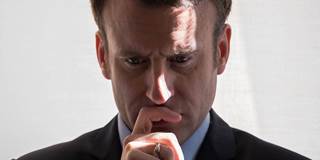Will the continent’s voters be offered the opportunity to decide on the key challenges their societies are facing, or will tactical maneuvering obfuscate the choices and permit the continued dominance of traditional politics? The nine months between now and the election of the next European Parliament will provide the answer.
PARIS – “There are two sides at the moment in Europe. One is led by Macron, who is supporting migration. The other one is supported by countries that want to protect their borders.” This is how Hungarian Prime Minister Viktor Orbán described the European political landscape during his August meeting with the Lega party’s Matteo Salvini, the strongman in the Italian government. “If they want to see me as their main opponent, they are right,” French President Emmanuel Macron instantly replied.
Both Orbán and Macron seem to think that the European Parliament election in 2019 will bring about a political realignment. But will it? Will the continent’s voters be presented with a choice between a closed and an open society? The answer to this question – which is central to the future of Europe and its citizens’ trust in democracy – is far from certain.
Europe’s political landscape offers a peculiar combination of idiosyncrasy and commonality. On one hand, it illustrates the maxim that “all politics is local”: parties are deeply rooted in national traditions, and pan-European groupings are only loose, non-influential federations. On the other hand, political spillovers are strong and waves of change regularly cross borders, reaching the entire continent.

PARIS – “There are two sides at the moment in Europe. One is led by Macron, who is supporting migration. The other one is supported by countries that want to protect their borders.” This is how Hungarian Prime Minister Viktor Orbán described the European political landscape during his August meeting with the Lega party’s Matteo Salvini, the strongman in the Italian government. “If they want to see me as their main opponent, they are right,” French President Emmanuel Macron instantly replied.
Both Orbán and Macron seem to think that the European Parliament election in 2019 will bring about a political realignment. But will it? Will the continent’s voters be presented with a choice between a closed and an open society? The answer to this question – which is central to the future of Europe and its citizens’ trust in democracy – is far from certain.
Europe’s political landscape offers a peculiar combination of idiosyncrasy and commonality. On one hand, it illustrates the maxim that “all politics is local”: parties are deeply rooted in national traditions, and pan-European groupings are only loose, non-influential federations. On the other hand, political spillovers are strong and waves of change regularly cross borders, reaching the entire continent.